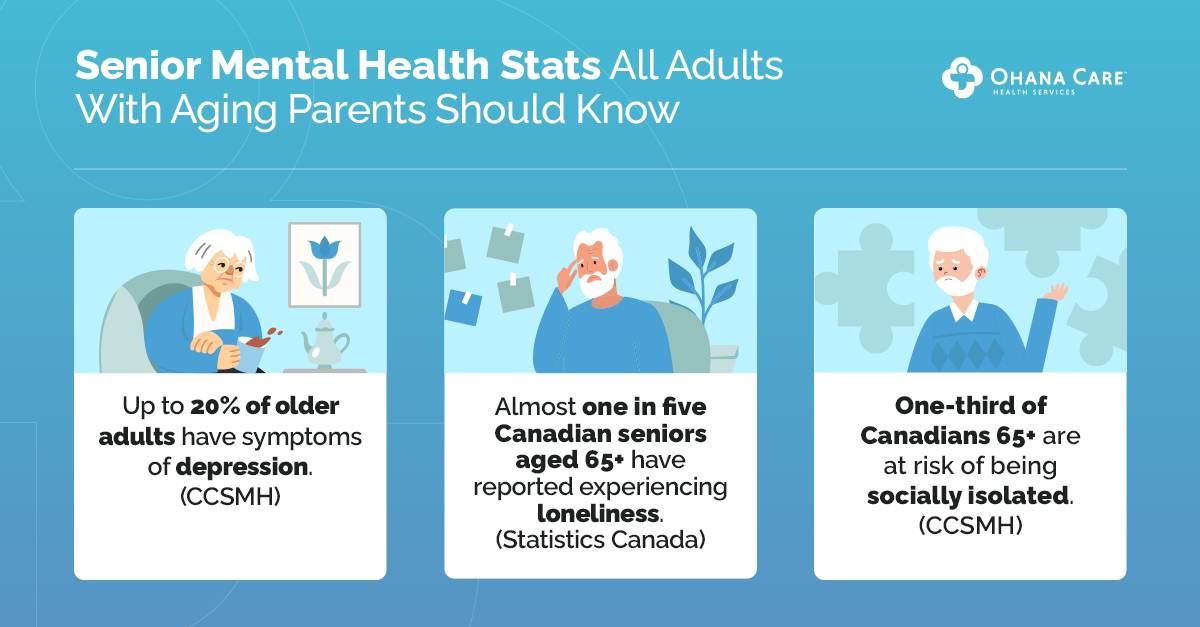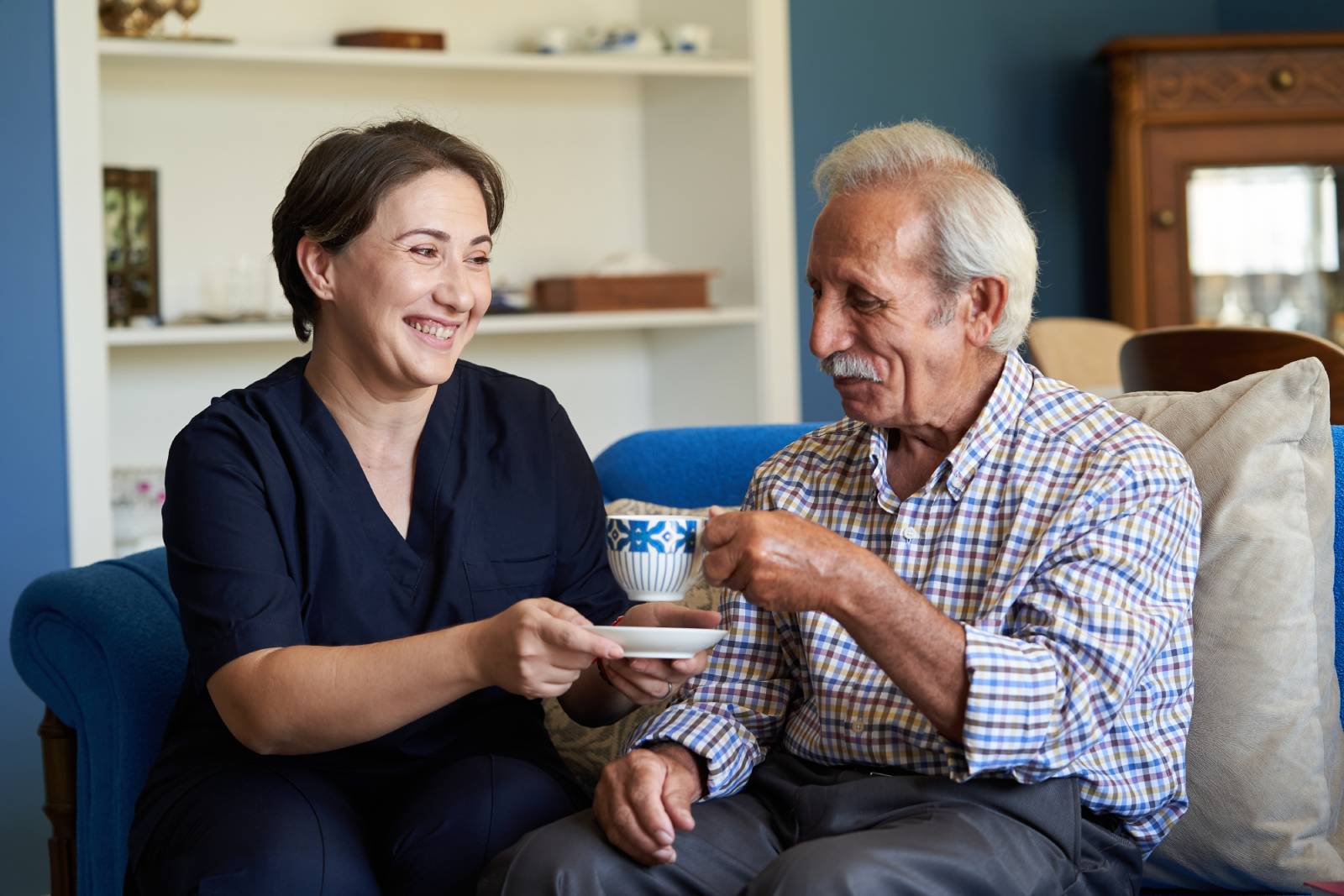Managing the experience of your parents getting older can be both emotionally and physically challenging. As you grow older, you find yourself becoming the source of support for the very parents who were always there for you.
But what happens when you live in a different city, province, or country and have to support them from a distance?
Trying to be their direct support system while living far away can cause an emotional tug-of-war. However, with thoughtful long-distance caregiver strategies, bridging the physical distance while providing the love and support your parents need to lead a happy and healthy life is possible.
In this article, we’re outlining eight ways adult children can offer unwavering support to their aging parents from afar.
1. Educate Yourself on Local Support Systems
Being informed about local support systems can significantly enhance your ability to assist your aging parents from afar.
Take the initiative to research senior groups or community centres in your parents’ area, as these can offer companionship and be a gateway to getting involved in social activities.
There are a variety of senior groups and local resources available for your aging parent. The following is a list of senior resources for Canadian provinces:
- Alberta: Directory of Seniors’ Centres
- British Columbia: Seniors’ Services Directory
- Saskatchewan: Directory of Services & Social Activities for Older Adults
- Manitoba: Seniors Guide
- Ontario: Find a Seniors Active Living Centre
- Quebec: Seniors Resources
- Newfoundland: Seniors’ Organizations and Retiree Groups
- Nova Scotia: Seniors’, Councils, Clubs, Centres and Other Seniors’ Organizations
- Prince Edward Island: Senior Support Services
- New Brunswick: Seniors’ Guide to Services
Sharing these resources with your parents can empower them to explore these social opportunities and build meaningful connections within their local community.
Educating yourself on local support systems and helping your parents get involved can foster a support network that becomes invaluable when you can’t be there in person.
2. Set Up Routine Video Calls

Distance may separate you physically, but technology can bridge the gap.
In 2022, internet use among Canadians aged 15 years and older reached 95%, up from 92% in 2020. (Statistics Canada)
Surprisingly, the largest increase was seen among Canadians aged 75 years and older, up from 62% in 2020 to 72% in 2022.
Fortunately, this means more elderly parents are warming up to digital tools.
One of the best ways to stay connected and help your parents from a distance is scheduling routine video calls.
Routine video calls simplify communication and allow for a more personal connection, transcending the challenges of physical distance.
Below, we’ve outlined some common video chat tools and instructions you can share with your family members on how to use the software:
- Facetime – Facetime Instructions
- Skype – Skype Instructions
- Zoom – Zoom Instructions
- WhatsApp – WhatsApp Instructions
Embracing these digital solutions can be a simple yet powerful way to stay connected with your aging parents.
3. Utilize Online Delivery Services
At times, especially during the winter season when temperatures can reach below -20°C (-4°F), it can be challenging for older adults to venture to the stores, especially if they can’t drive.
Instead, consider using online delivery services and getting groceries, medications, and other necessities delivered straight to their door. Delivery services offer convenience and guarantee their basic needs are met.
Here are some online delivery services available in Canada:
- InstaCart: Grocery delivery service
- Amazon: Miscellaneous product delivery from popular brands
- Uber Eats: Food delivery service
- Door Dash: Food delivery service
- MedNow: Medication delivery service
- StoretoDoor: Local same-day delivery service
4. Create a Shared Online Calendar
Create a shared online calendar to help your aging parents keep track of important dates, appointments, and activities.
With a shared calendar, you can navigate the intricacies of your parents’ schedule, ensuring that you remain connected and well-informed even from a distance.
You can also add other family members or family caregivers to your shared calendar. That way, it can become a centralized hub for everyone involved, promoting transparency and ensuring that crucial tasks and engagements are never overlooked.
Google has an easy-to-understand article on how to use a family calendar on Google Calendar, so you’ll never miss important dates.
5. Facilitate Mobility Services

If your aging parents can’t drive or live far from public transportation, look into services that can help them get around, such as local transportation services specifically for seniors.
Mobility services not only ensure their independence but also contribute to their overall well-being. By facilitating access to these services, you alleviate the stress associated with transportation challenges, offering a practical solution for your aging parents.
Here are some transportation services that you may consider looking into:
- Alberta:
- British Columbia:
- Ontario:
6. Set Up a Local Emergency Contact
When your loved one is far away, not hearing from them often can create unneeded anxiety and stress.
Establishing a local emergency contact offers practical assistance in times of urgency and a sense of security and comfort for both you and your aging parents.
When choosing a local emergency contact, consider choosing a trusted neighbour, friend, or primary caregiver who can respond promptly to your questions, needs, or concerns.
Knowing that a dependable person is close fosters peace of mind, allowing you to focus on providing emotional and logistical support from afar, confident that someone can step in if needed.
7. Monitor Their Mental Health
Unfortunately, seniors can greatly struggle with isolation and mental health issues.

Try to keep a close eye on signs of depression or anxiety in your parents.
When communicating with your aged loved ones, encourage open conversations and be proactive in arranging professional support if needed.
If you have any mental health concerns, consider visiting them to spend quality time together or connecting them with professional services.
8. Connect Them With a Trusted Caregiver
Another primary way to help aging parents from afar is to consider engaging the services of a trusted caregiver, like the ones from Ohana Care.
Caregivers can provide compassionate and personalized care for seniors in a private home or assisted living facility. They can offer the support your parents need to age gracefully and comfortably, such as:
- Providing transportation to medical appointments
- Helping with meal preparation
- Going on walks
- Playing games
- Coordinating medical care appointments
- Supporting with household chores
- Going grocery shopping and more
Additionally, knowing your aging loved ones have a trusted local caregiver will give you peace of mind, reassuring you that they are in capable and caring hands.
Help Your Loved One Receive Caregiving Support Through Ohana Care

Partnering with a reliable caregiving service, such as Ohana Care, can provide peace of mind that your parents are in good hands when you live far away.
At Ohana Care, we offer various in-home care services, such as companionship and respite care, so that your parents can age comfortably and you can feel confident they are getting the in-person support they need.
Additionally, when you choose Ohana Care, you’ll receive access to our online family portal. This portal allows you to stay in the loop and view upcoming caregiver visits, your parent’s care team, and care plans, and receive daily updates about visits from their caregivers.
Ultimately, the miles between you and your aging parents do not measure the love you share or the care you can provide. With the right approach and resources like those offered by Ohana Care, you can significantly impact their lives, ensuring they feel loved, supported, and connected, no matter the distance.
If you’re interested in learning more about our in-home care services, reach out! We look forward to discussing how we can help your parents, especially when you can’t physically be there.



